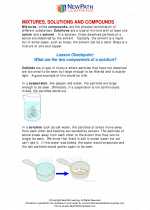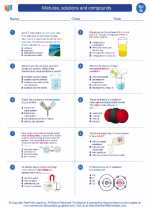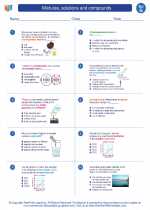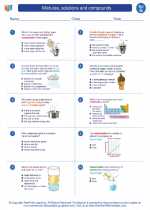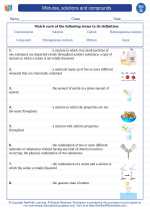.Evaporation
Evaporation is the process by which a liquid turns into a gas or vapor. This occurs when the molecules in a liquid gain enough energy to break free from the liquid's surface and become a gas. The most common example of evaporation is when water on the surface of the Earth turns into water vapor due to the heat from the sun.
Factors Affecting Evaporation
The rate of evaporation can be influenced by several factors:
- Temperature: Higher temperatures generally lead to faster evaporation, as the increased heat gives more energy to the liquid molecules, allowing them to escape from the liquid phase more easily.
- Surface Area: A larger surface area allows for more liquid molecules to escape into the gas phase, increasing the rate of evaporation.
- Humidity: Lower humidity (dry air) promotes faster evaporation, as there is less moisture in the air to inhibit the escape of water molecules from the liquid phase.
- Wind: Increased air movement can carry away water vapor from the surface, promoting faster evaporation.
Applications of Evaporation
Evaporation has numerous practical applications, such as:
- Water Purification: Evaporation is used in the process of desalination, where seawater is evaporated to separate the salt from the water, producing fresh water.
- Food Preservation: In the food industry, evaporation is used to remove excess moisture from food products, extending their shelf life.
- Climate and Water Cycle: Evaporation plays a crucial role in the Earth's water cycle, where water evaporates from the surface, forms clouds, and eventually falls back to the Earth as precipitation.
Study Guide
To better understand the concept of evaporation, consider focusing on the following key points:
- Define evaporation and explain the process using molecular-level details.
- Discuss the factors that affect the rate of evaporation and provide real-life examples for each factor.
- Explore the practical applications of evaporation in various industries and natural processes.
- Compare and contrast evaporation with other phase transitions, such as boiling and condensation.
- Conduct a hands-on experiment to observe and measure the rate of evaporation under different conditions.
By thoroughly studying these aspects of evaporation, you can gain a comprehensive understanding of this important natural phenomenon and its significance in various fields.
